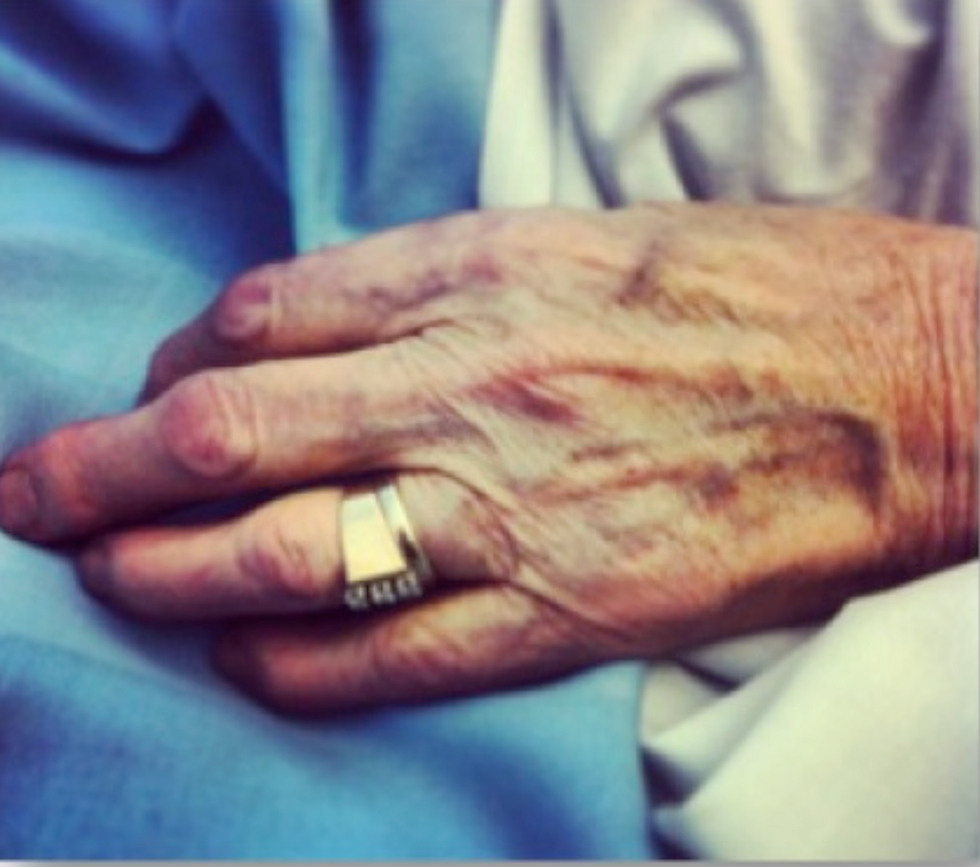Explaining Bad Things
- Sue Robins

- Jul 2, 2021
- 3 min read

We did not celebrate Canada yesterday. Instead, we spent the day explaining to our son - who is 18 years old and has Down syndrome - about residential schools, unmarked children's graves + the trauma experienced by Indigenous people in Canada.
We must talk to all our children about the genocide our government and the church inflicted on Indigenous families. I don't care if it is hard to do. It must be done.
Here are a few practical things that we did to start the conversation with Aaron. It is our job as settlers to do our own research and figure out what to do.
1. We all wore black and orange yesterday. At the bare minimum, this was the very least we could do.
2. We drove to see the residential school in Kamloops a few weeks ago. Seeing the building in person helped make it real to him - and us too.
3.. We visited the memorial at the Vancouver Art Gallery on Monday and stood in silence to think about the lost children.
4. We sat down at the computer and researched an Indigenous organization to donate to, We settled on Urban Native Youth Association as a good fit. Aaron loves to save his money, but when I asked how much he would donate from his own bank account, he hesitated and then said, “OK, $25 then.”
5. Last night, we watched Cindy Blackstock's animated Spirit Bear film, which was free yesterday from the First Nations Child and Family Caring Society. It explained in clear terms all the work Indigenous people have had to do to fight for equal rights in health + education for their children. It also highlighted the Government of Canada's constant foot dragging and delays in court.
After Spirit Bear, Aaron turned to me and said, “So the government doesn’t look after people.”
I replied. "They look after some people - people like them - but not all the people.”
Aaron then asked a harder question:
"Well what’s the government's job then anyhow if they aren’t looking after people?”
I did not know how to answer him. “Uh, well, they do look after their friends” I said. He nodded and looked away. I’m going to have to find a better answer. .
Aaron has experienced oppression in his own life because he is disabled. I am keen not to compare the two different experiences, but I did say, "Do you remember how you had to fight to get your first COVID vaccine?" He said yes. I said that's what Indigenous people have to do all the time so they get fair treatment from our government.
We didn’t want to only talk about Indigenous people in terms of trauma. We reminded him of all the pipeline protests we went to with him and how they were led by Indigenous people. There was singing and drumming there - joy and humour too - in the midst of a dark situation. We told him that Indigenous people were protecting the land and water for everybody.
"Why does the government do this?" he asked.
This was a challenging question to answer. It was because of racism, we said. My husband explained that it was also because of the land. That the land was valuable to the government and their friends because things like oil, coal, gas and lumber were there and so they needed to get the Indigenous people out of the way to take the land.
We didn't do everything correctly or had all the right answers. We still continue to learn.
I do know that we need to make the time for these conversations with our children, no matter their age or intellectual disability. Not just on July 1st. This is part of Canada. This is who we are.
We cannot continue to look away.




Comments